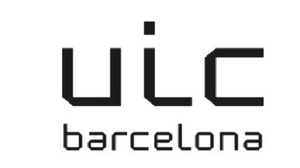
Centro Premium
Healthy Cities and Sustainable Cities are two sides of the same coin: both place citizens’ well-being and sustainability at the heart of urban transformation. There is currently a lack of programmes that address this need for urban planners and designers who are trained to achieve some of the sustainable development goals in a comprehensive manner through urban design.
This master’s degree was set up in response to this situation, to provide a conceptual and methodological basis for planning and designing the city based on well-being and sustainability principles, and addresses both the professional and research dimensions. Regarding the former, experts trained to promote wellbeing and good health for citizens through sustainable urban design and planning are needed. In relation to the latter, new research approaches to study the links between complex urban systems and health are also necessary.
Main recipients: architects, urban designers, urban planners, landscape designers, civil engineers, students from all disciplines involved in the design, management, physical planning of the city.
Secondary recipients: environmental scientists, urban geographers, students from all disciplines who (despite the fact they do not intervene directly in the physical transformation of cities) generate the urban cartographies that are necessary to transform them.
The master program consists of 24 theoretico-practical seminars on specialized topics and a design-based synthesis workshop.
Conceptual Framework
1. Planetary Health and Environmental Epidemiology
2. City Layers
Research Tools
3. Community Diagnosis & Socio-spatial Analysis
4. GIS, PPGIS & Socio-spatial Analysis
5. Citizen Science & Urban Sustainability
6. Parametric design and statistics
7. Dissemination of urban planning projects
Environmental Dimension
8. Mobility and City Planning
9. Energy planning & Waste management
10. Food and Water
11. Nature-Based Solutions
12. Health Evaluation and Assessment of Urban Planning Interventions
Cultural Dimension
13. City & Landscape Identities
14. Heritage in Urban Intervention
15. Landscape Values & Development
16. Place Attachment
17. Urban Sense of Place
Social Dimension
18. Cooperative Urban Transformation Processes
19. Empowerment & Social Networks
20. Safety Perception
21. Physical Activity in the city
22. Environmental Justice
Economic Dimension
23. Sustainable Economy
24. Economic Evaluation
Synthesis Workshop
Transversal workshop. Learning Synthesis and Application
Master’s Degree in Urban Design for Healthy Cities
University graduates (with or without work experience) with university studies preferably in Architecture, Urban Planning, Environmental Engineering or Landscape Design who wish to expand their knowledge in relation to the new shift towards sustainable urbanism and well-being. Also, professionals and researchers who have an interest in improving their skills in the four dimensions
involved (environmental, social, cultural and economic).
Prior qualifications:
Demonstration of background knowledge about urbanism in motivation letter
Other postgraduate studies
Description of relevant work experience
Información Adicional
Precio: 8.820 €
Precio/ ECT: 147 €
Derechos de inscripción: 480 €